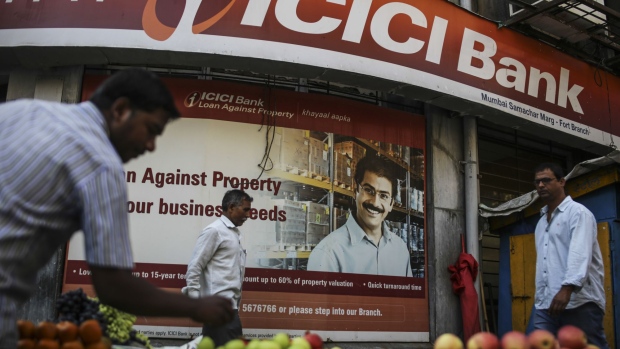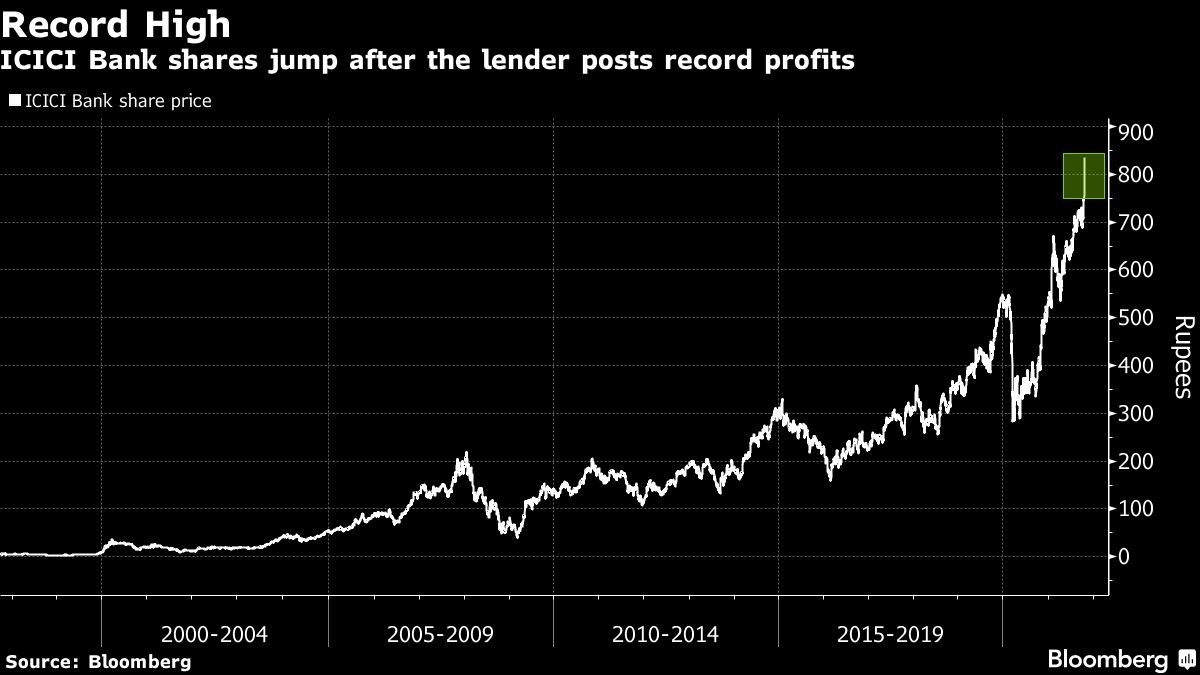Oct 23, 2021
ICICI Bank shares jump as loan growth buoys profit to record
, Bloomberg News

ICICI Bank Ltd.’s shares climbed after the lender posted a record profit in the second quarter, buoyed by strong loan growth as consumer demand improved in India.
Net income at the country’s second-largest private lender stood at the highest-ever 55.1 billion rupees (US$734 million) in the quarter ended September, compared with 42.5 billion rupees a year ago, it said in a statement Saturday. That beat the average estimate of 49.8 billion rupees from nine analysts in a Bloomberg survey.
The bank’s shares surged 10.9 per cent Monday, the most since Feb. 1. That compares with a rise of 2.3 per cent in the S&P BSE Bankex index and 0.2 per cent in the benchmark BSE Sensex index.

The results come after HDFC Bank Ltd., India’s largest private lender, beat profit estimates due to improving credit growth. Banks are offering decade-low interest rates to individuals for buying homes, cars and other consumer goods to boost their loan books. Companies such as automobile manufacturers and e-commerce giants are also offering discounts to push sales.
“ICICI is one of the best placed among peers to win market share in lending as India’s economy recovers,” Bloomberg Intelligence analysts Rena Kwok and Sheenu Gupta wrote in a note.
India’s COVID-battered economy is starting to recover with diesel consumption rebounding in the first half of October. Private consumption accounts for more than half of the economy’s growth.
“Going ahead, we are optimistic about the growth of the Indian economy,” said Sandeep Batra, an executive director at ICICI Bank, in a media call. “We see many opportunities to grow our core operating profit in a calibrated manner.”
The bad-loan ratio at ICICI Bank narrowed to 4.8 per cent in the three months to September, from 5.2 per cent in the previous quarter. It set aside provisions of 27.1 billion rupees in the September quarter, down from the 28.5 billion rupees in the previous three months. The lender’s domestic loan portfolio grew by 19 per cent year-on-year.
The Mumbai-based bank issued the most number of credit cards after the banking regulator barred its competitor HDFC Bank from providing new ones, according to local media reports.
“Everyone always used to ask who is the next HDFC Bank, and we could never find a suitable alternative,” said Suresh Ganapathy, research analyst at Macquarie Capital Securities. “But that has changed now.”


